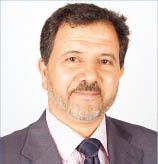
Qatar- Addressing extremism on Internet
During the last few years the call to articulate a moderate yet efficient alternative to what can be perceived as ‘religious extremism’ in the Muslim world has become undoubtedly urgent. The development of the group labelled as Daesh is an illustration of how desperate this alternative must be urgently sought after particularly in the Arab region.
It has been evident that the advent of satellite TV and recently the social media networks have both transformed the traditional approach to identity construction and the negotiation of ones long-held values. Across various countries new technologies have extended the spaces of influence for the circulation and negotiation of religious discourse whether we talk about Islam or other faiths. Such unprecedented conditions have led to the emergence of a multiplicity of religious authorities and the absence of a unified establishment able to earn an overwhelming legitimacy and influence among the populace.
One may argue that Daesh for instance is the creation of social media because thanks to the sophisticated technologies a group such as this has managed to build their networks exchange information recruit supporters and spread propaganda material. Facebook Twitter YouTube and other Internet platforms have become the driving force contributing to the above powerful connectivity.
These unprecedented developments in computer-mediated communication have transformed our perception of the ‘user’ or ‘consumer’ of Internet content. Reference to the Internet use in various Arab countries among the youth tells us that content production and active interaction in the social media networks is increasing at an overwhelming pace. The new participatory culture seems to characterise the current interactivity. A brief analysis of the social media networks of some religious groups reveals that users are largely active in producing content in terms of comments sayings short articles video clips and pictures. Also in most of the cases they tend to circulate content from other users or other internet sites.
Pan-Arab media can be seen as important players in the thriving of religious revival. However such spaces have become arenas contested between various religious schools of thought. The obvious impact of various religious figures is evident nowadays. Through exposure to a myriad of different religious teachings religious activists develop their identity and cultural affinities some of which are through the influence of preachers from various different countries not necessarily just in the country of residence. More importantly online interactions also lead to the development of online identities a phenomenon which can become out of control.
It is very obvious as a result that social media networks and homepages have led to the decentralisation of traditional religious authorities.
For instance traditionally the North African countries are homogenous in terms of their religious authority regarding fatwa (religious rulings) and other decrees which come from a Grand Imam or the Mufti (religious judge) in each country. Now the internet is changing not only how people exchange religious teachings but they themselves have potentially been transformed into influential authorities over the religious discourse being circulated.
Among many the understanding of authority is shifting dramatically from the hands of the well-established and experienced religious leaders through creating new axes of power the internet sheikhs. A plethora of religious websites nowadays provide a platform of engagement and a challenge to the established authority hence flattening the traditional religious power
centres.
Consequently and contrary to the hegemonic classes (in Gramscian terms) such as intellectuals and other organised power structures in society who traditionally represent cultural and other forms of dominance I would argue that a few extremist groups in various countries have emerged as the new centres of influence in society. Many do not possess intellectual leadership but they can prove influential in changing the youth culture and establishing an eccentric trend from the mainstream.
This worrying phenomenon needs to be overcome given its negative impact on the youth and society in general. The Internet is certainly one of the terrains in which such deviancy can be challenged.
Dr Noureddine Miladi is Professor of Media and Communication. He can be reached via e-mail:
All thoughts and views expressed in these columns are those of the writers not of the newspaper.
All correspondence regarding Views and Opinion pages should be mailed to the Editor-in-Chief.

Legal Disclaimer:
MENAFN provides the
information “as is” without warranty of any kind. We do not accept
any responsibility or liability for the accuracy, content, images,
videos, licenses, completeness, legality, or reliability of the information
contained in this article. If you have any complaints or copyright
issues related to this article, kindly contact the provider above.

















Comments
No comment